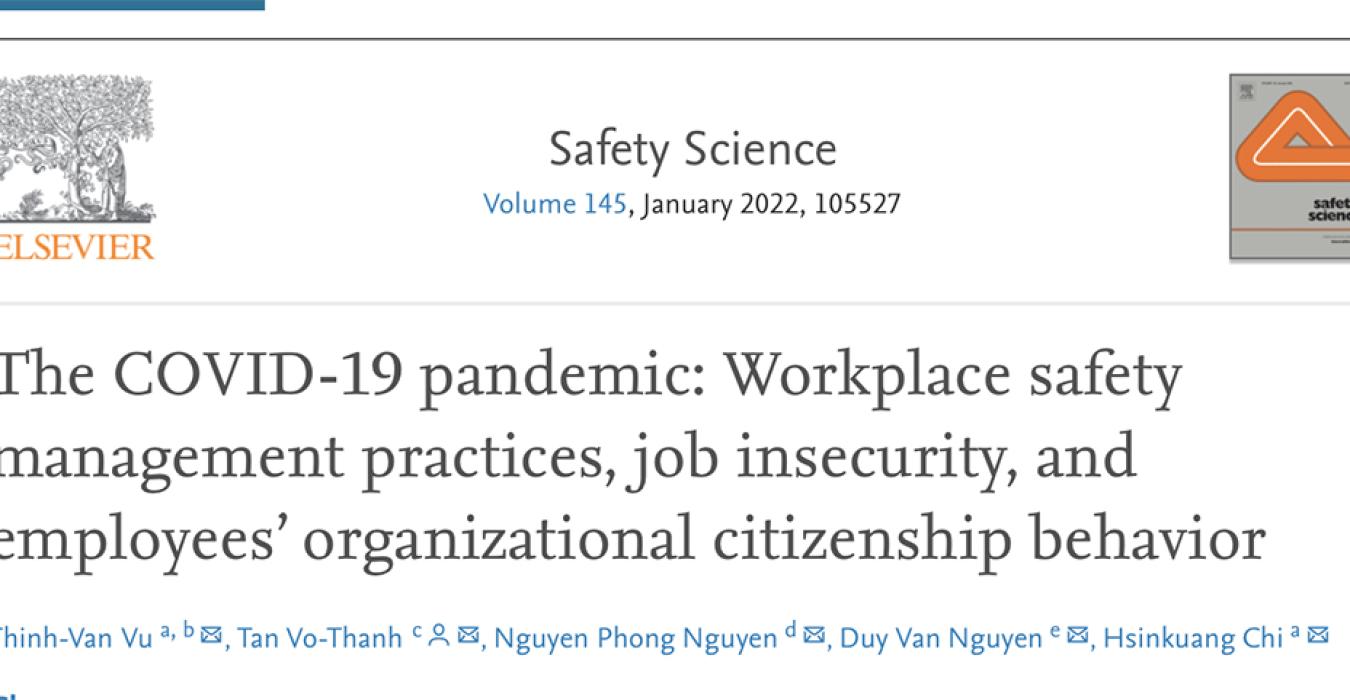
Pham Thi Lan Huong1*, Nguyen Trung Thanh2,3, Nguyen Van Duy4, Le Xuan Linh5
- National Economics University; Foreign Trade University
- School of Economics, Shanghai University, Shanghai, China
- Faculty of Economics and Business Administration, Hatay Community college, Hanoi, VietNam
- Viet Nam Quantitative Analysis Joint Stock Company
- Admicro VCCorp
* Author's contact information: Email: huongptl.neu@gmail.com
Tóm tắt
Từ sau khủng hoảng tài chính năm 2008, nền kinh tế toàn cầu bị ảnh hưởng nặng nề. Các nhà đầu tư bắt đầu bị mất dần niềm tin vào thị trường chứng khoán. Nhóm tác giả tiến hành phân tích các yếu tố nội bộ hoạt động công ty cổ phần ảnh hưởng như thế nào tới giá cổ phiếu giai đoạn 2011 đến 2015. Bằng việc sử dụng phương pháp phân tích định lượng với mô hình dữ liệu bảng với cả 3 mô hình Fixed effect, Random effect và mô hình GMM đều chỉ ra các yếu tố nội bộ có tác động rõ rệt tới giá cổ phiếu: Return on equity (ROE); Book value per share (BV); Dividend per share (DPS) và Firm size (SIZE) có tác động tích cực còn Dividend yield (DY) có tác động ngược chiều lên giá cố phiếu (MPS).Với giá trị R square các mô hình đều bằng 0.643 cho thấy mô hình giải thích được 64.3% sự thay đổi của giá cổ phiếu thông qua các biến nghiên cứu.Từ kết quả nghiên cứu trên, nhóm tác giả cũng đưa ra một số khuyến nghị giúp các nhà đầu tư có các quyết định đầu tư phù hợp với tình hình hoạt động của doanh nghiệp. Đồng thời các doanh nghiệp cũng có chính sách hợp lý giúp nâng cao giá cổ phiếu của công ty mình.
Từ khóa: Giá cổ phiếu, mô hình Fixed effect,mô hình Random effect, mô hình GMM
Abtract
Since the financial crisis of 2008, the global economy was affected quite hard. Investors are losing their confidence in the stock market. The authors analyzed the internal factors of shareholding companies to see how it effects on the market price of shares in the period of 2011 to 2015. By using the quantitative analysis model with panel data model and three models: Fixed effect, Random effect and GMM model, all indicates that all internal factors have impacts on the share price significantly: Return on equity (ROE); Book value per share (BV); Dividend per share (DPS) and Firm size (SIZE) have a positive impact on share price while Dividend yield (DY) has a negative impact on market price of shares (MPS). With the values of R square in all model are 0.646, it shows that the model explained 64.6% change in stock price through studied variables. From above results, the authors also offer some recommendations to help investors to have more appropriate investment decisions according to the operations of business. At the same time, enterprises also have more reasonable
Key words: Market price of shares, fixed effect, Random effect, GMM model
- INTRODUCTION
The financial crisis of 2008 has broughtthe strong volatility and uncertainty on the stock market [1]. Acorrding t the study by Rudd, global equity markets have lost approximately US$32 trillion in value since heir peak [2]. Before the crisis, stock investment is considered as a profitability source for investors. However; since 2008, this kind of investment becomes risky for them. Therefore; the volatility related to stock price gets a lot of interest from investors.
Collins is the person who had first steps in assessing enterprises’ internal factors on market price of share [3]. He identified dividend, net profit, operating earnings and book value per share as the prominent factors affecting share prices in US market. After that, there were many researchers conducting studies in various environments.
Scholars have attributed several internal factors and external factors as factors affecting stock price. The company specific or internal factors are company performance, a change in the board structure, asset position, Dividends and earnings. The external factors include governmental regulations, business cycle, investor’s attitude, market conditions, natural calamities and contingencies like strikes
Khan & et al issued an evaluation on the impact of dividend policy on Stock prices in Malaysia. It described that dividend yield, earnings per share, return on equity and profit after tax are positively related to stock prices while retention ratio have negative relation with stock prices [4]
Also, there are a lot of studies in other stock market. However; in Vietnam, studying about enterprises’ internal factors still has some limitation. Therefore, this research studying on enterprises’ internal factors on market price of share will become necessary in order to support investors and companies which listed in Stock market to have appropriate policy to gain their business objectives.
















![KHÓA HỌC PHÂN TÍCH DỮ LIỆU CƠ BẢN VỚI R [27/6/2020] KHÓA HỌC PHÂN TÍCH DỮ LIỆU CƠ BẢN VỚI R [27/6/2020]](https://nghiencuudinhluong.com/apps/timthumb/timthumb.php?src=https://nghiencuudinhluong.com/uploads/bai_viet/flat550x550075fu4.jpg&w=77&h=56&q=75)





Thư điện tử của bạn sẽ không được hiển thị công khai. Các trường bắt buộc được đánh dấu *